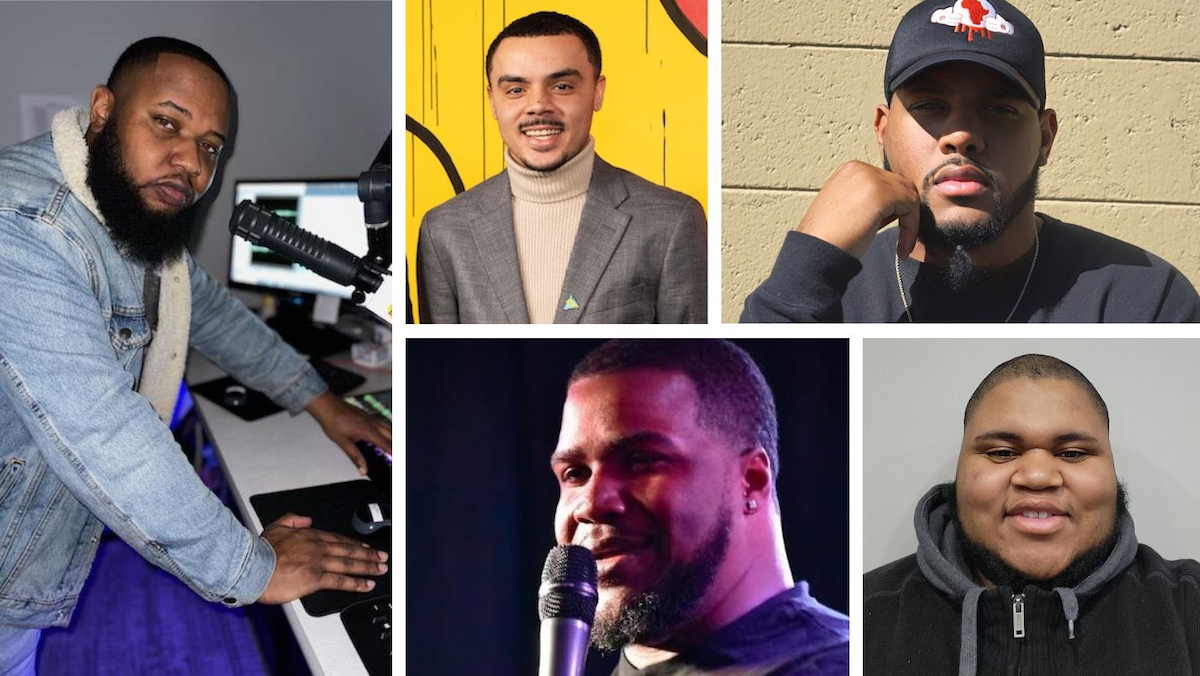Halfway through his sophomore year of college, he’d lost focus and his grades plummeted fast. Making matters worse, Ramey had fumbled the scholarships that paved his way to school in the first place. Back home in Milwaukee during the holiday break and facing an uncertain future, Ramey says he simply gave up.
“I was like, f*** it, I don’t really care,” Ramey told Technical.ly, adding he eventually dropped out of his classes. “I was living off of 57th and Keefe [in Milwaukee’s urban core], riding around getting high, and putting myself in situations where I was in danger. I wasn’t thinking.”
At the behest of his father, Lanelle Ramey, a prominent social worker and community activist in the city, Ramey agreed to meet with the Boys & Girls Clubs of Greater Milwaukee in an attempt to regain his footing. He showed up to the center, reeking of smoke, and nearly blew the entire opportunity. But when he returned home, his mentors, seemingly undeterred, called and extended their support once again.
“They said, we hear you, and we hear what you’re going through, and they ended up giving me that opportunity,” Ramey said. He reenrolled in college and joined the MKE Fellows program, a leadership initiative that encourages young Black men to complete their college education and prepares them for successful future careers.
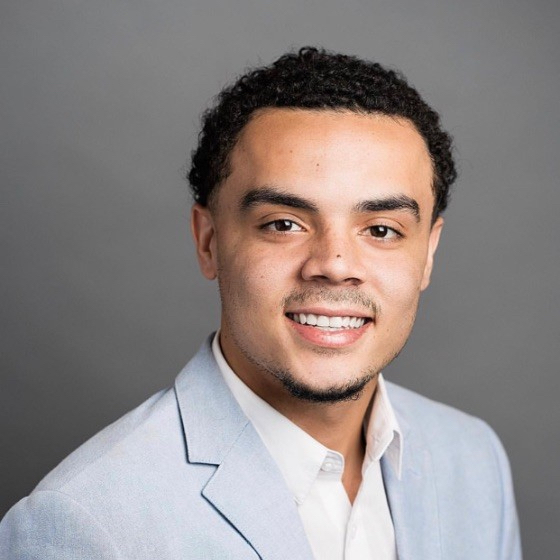
Ramey threw on a suit and attended his first networking event. Standing in the room and surrounded by flourishing Black men and women provided the wake-up call he needed. He was ready to change his life.
“Growing up, we didn’t have that,” Ramey explained. “I could see myself in their shoes because they looked like me and talked like me. Just being there, I thought OK, it’s time to get serious and think about my future’ — and in that moment, it just clicked. God had bigger plans for me. Overnight, I was just done with this path.”
He graduated from the University of Wisconsin – Oshkosh in 2018. Today Ramey, 27, and now the father of two, is working toward his MBA. He’s aiming to use his story — and success — to uplift his fellow peers in the community.
A city fighting to change the narrative
In Milwaukee, second chances are hard to come by, especially for the city’s young Black men.
Despite being a majority-minority city with a Black population topping off around 40%, seismic opportunity gaps between Blacks and their white counterparts have persisted through the generations with vehemence.
Like other Rust Belt cities with significant Black populations, including Detroit, Chicago or Cleveland, Milwaukee’s core neighborhoods were deeply impacted by high rates of deindustrialization throughout the 1980s and ‘90s. Without these family-sustaining manufacturing jobs, more than 40% of Black families sunk below the poverty line, and many Black-owned businesses fell to the wayside. Drugs seeped into the community, followed by spikes in gun violence and crime.
The resulting economic disparities were further exacerbated by decades of racial discrimination, including a history of redlining as still evident in Milwaukee by the highway division of Interstate I-43, a development that offered mostly white suburbanites a quick, convenient way to travel in and out of the city, but lacerated once-thriving Black neighborhoods such as Bronzeville.
The metro region is consistently deemed the most segregated city in the nation, with report after report citing a laundry list of disparities to support the nomenclature.

Over the years, Wisconsin’s biggest city has been baptized in a swell of unwelcome headlines for suspending black high school students at a rate higher than found in any school district in the country; producing the widest racial achievement gap between Black and white students of any state; its growing decline in Black homeownership with a rate of nearly 2:1 when compared to white households in five-year estimates; the lowest percentage of bachelor’s degree holders for Black people in any large metropolitan area; and for being home to 53206, the infamous ZIP code known for having the highest incarceration rate of Black men in the country at more than 62%, with the neighborhood’s female incarceration rate following close behind.
The list of inequities rolls on.
These divisions extend across Milwaukee’s entrepreneurial class. Nationally, Black-owned businesses comprised roughly 2.4% of all US businesses, but here they make up just 1.8%. As the city attempts to build itself into “the next big tech hub,” some see the region’s snail progress as comeuppance for its sluggish embrace of fair recognition and equitable advancement.
While it’s difficult for any startup to get their business off the ground or win capital from investors to be sure, especially for BIPOC ventures, Milwaukee’s Black founders express rumbling frustrations about fighting for a seat at the table.
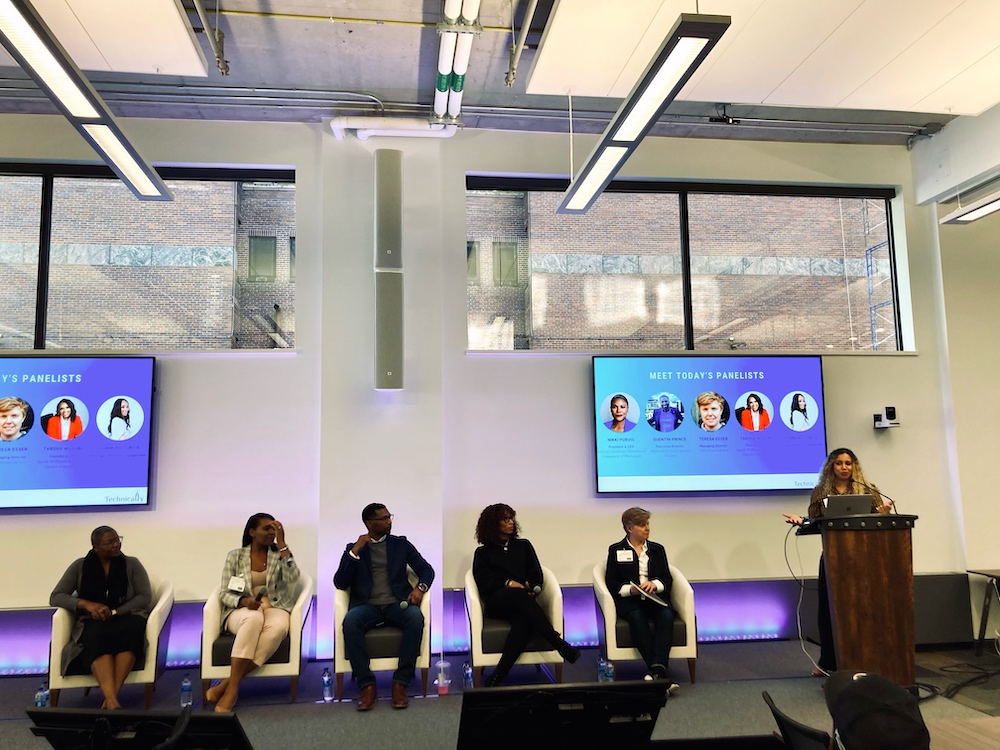
Many of them aren’t waiting for an invite. In the wake of the murder of George Floyd and the resulting civil unrest, including in the years leading up to the Black Lives Matter movement when Milwaukee experienced its own version of the turmoil following a fatal police-involved shooting in Sherman Park, countless organizations and groups have emerged, launched, or expanded their reach to level the playing field.
With these efforts solidly underway, the tide is slowly turning. Still, too many Black and brown folks remain swept up in the city’s undercurrent. When it comes to the city’s young Black men, many are fighting disproportionate battles that stretch beyond the public consciousness: lower earnings, unrelenting racial bias, fears of police brutality, their depictions in the media — all while trying to find their way in the world.
Yet, Milwaukee’s story isn’t one of doom and gloom. In spite of its challenges, the city’s Black residents reflect a history and culture of ebullient resilience. So, what moves young Black men like Brandon Ramey to push through the obstacles and progress forward?
What does it mean to thrive?
Technical.ly spoke with Ramey and four other driven young men for our Milwaukee installment of Thriving, a yearlong reporting series aimed at centering and collecting the lived experiences of people living in Philadelphia, Boston, Brooklyn, Milwaukee and other comparative cities, to learn what it takes to create an equitable future.
Over the past few months, we sat down with each of our subjects to hear more about their goals, gauge their struggles, and gain a better understanding of what keeps them motivated in a region that so often stacks the cards against them.
These enterprising men may follow different paths but their goals are ultimately the same: They seek shared freedom and expression to pursue their version of the American Dream.
These Milwaukeeans are hopeful, optimistic, and eager to change the city’s narrative. Here’s how they’re defining what it means to thrive while defying the odds.
Prince Grayson: ‘My mindset is to go out and get it — I want this’
Prince Grayson didn’t grow up rich.
While the 21-year-old recalls a happy childhood, his close-knit family often struggled to stay financially afloat. Raised by a tenacious single mother with his three siblings between Milwaukee and Chicago, his mother made it clear that every dollar spent in the household was hard-earned.
Grayson’s mother did everything to survive, including piling the family into a Milwaukee shelter at one point so the certified nursing assistant could save enough money to get back on her feet.
“It was tough,” Grayson said of the time. “There were times I had holes in my clothes. We knew we had to be mindful of electricity, water, how much we ate. My mom is from Chicago so she kept it real with us. I definitely commend my mom for inspiring me to do my own thing.”
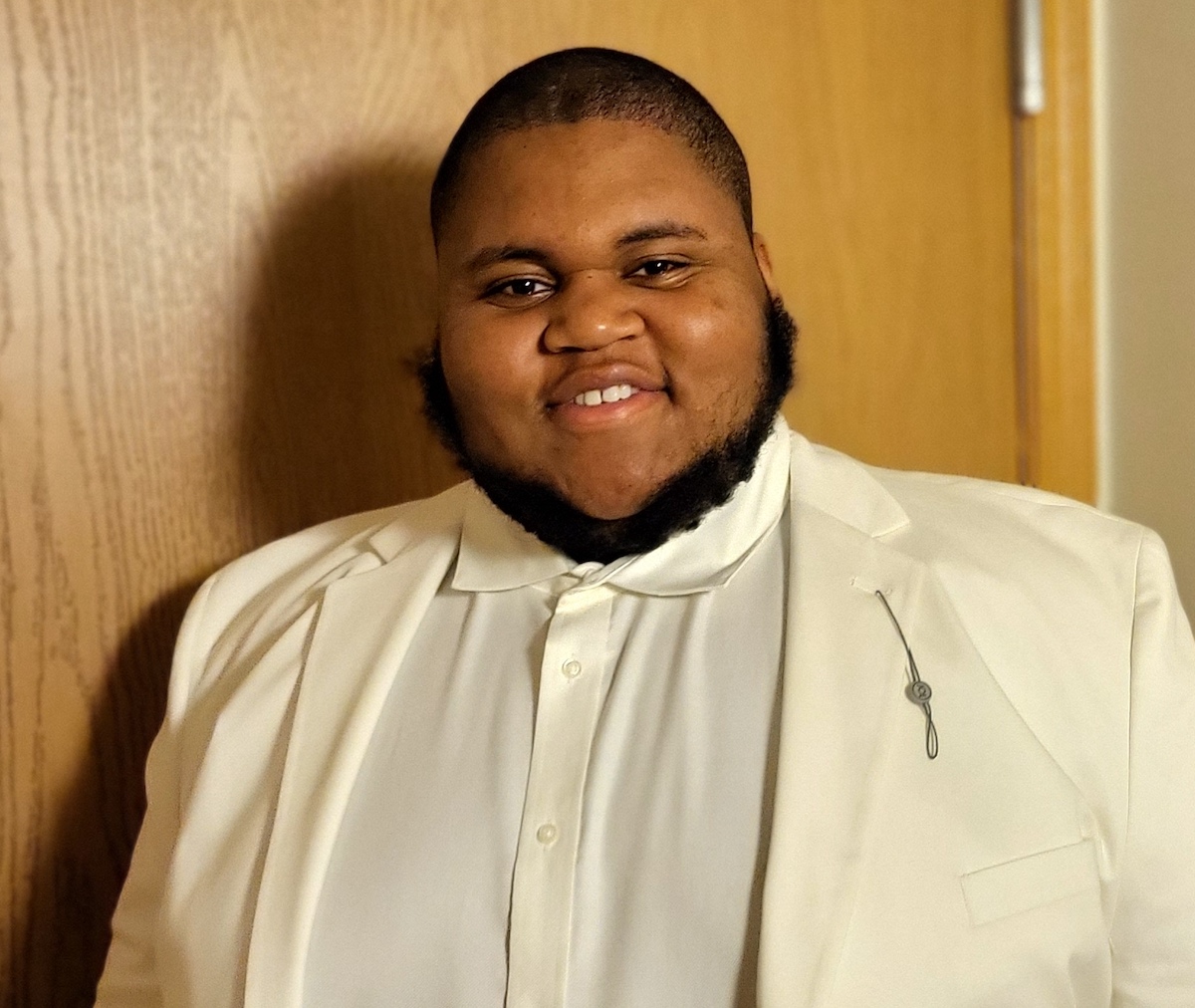
All his mom asked was that the children stay focused on succeeding in school so they wouldn’t have to work as hard as she did to keep the lights on or put food on the table. She encouraged her children to follow their dreams. Grayson was determined to help his family break the cycle of poverty.
“I know too many people who work at places like McDonald’s or in manufacturing, places they don’t really want to be,” Grayson said. “We have been having to go to jobs that we don’t like just to survive for generations. Now, we actually want to live. We want to travel, live, love, laugh, just find happiness, real happiness. That’s what I consider thriving.”
Growing up, Grayson said he demonstrated a knack for “breaking stuff apart.” People were constantly asking him to fix the television or take a look at the vacuum that had suddenly lost suction. As a teen, he began fixing iPhones as a side hustle. He thought about going to school to become a mechanical engineer, but his real passion was in gaming and tech.
After high school, Grayson briefly considered a career in trucking but was too young to secure the permit. And the high costs of traditional college seemed out of reach. Eventually, he found his way to Public Allies, a social justice organization that matches emerging diverse leaders to nonprofit apprenticeships.
That’s when he was introduced to the career possibilities of IT.
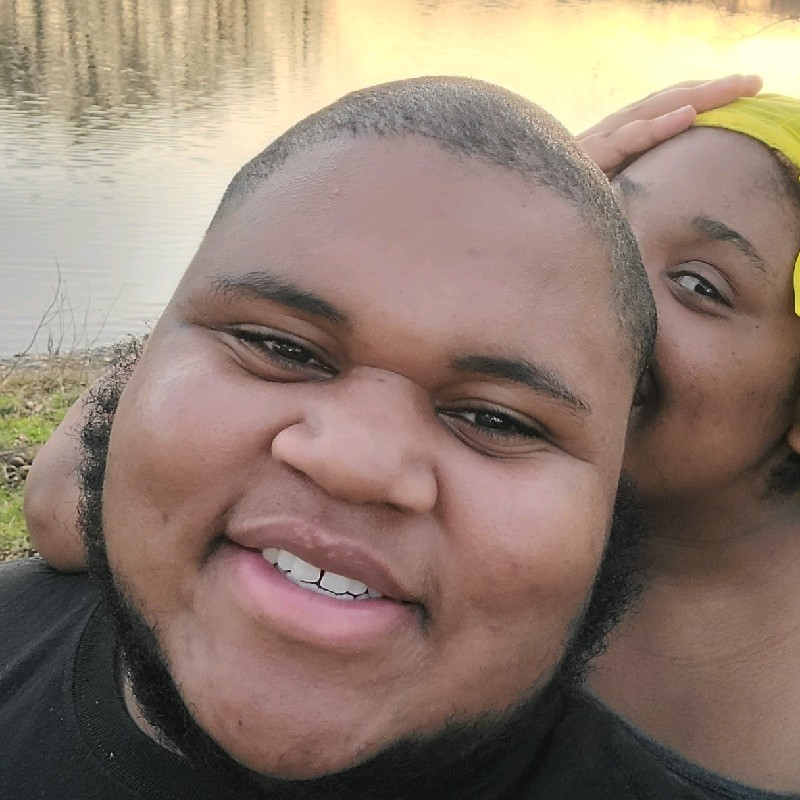
What he didn’t learn on the job, he supplemented with hours of YouTube videos and Google searches. Outside of the role, Grayson said Public Allies opened the door to some of the city’s most prominent organizations, such as Rockwell Automation, and many others he says previously flew under his radar.
“Milwaukee is so segregated … everywhere,” he said. “It’s really up to you to figure out where to go.”
The experience taught Grayson, now a manager of IT and system admin at Public Allies and a board member at storytelling nonprofit Ex Fabula, to become more proactive in his goals.
He recently earned an associate’s degree in IT from Milwaukee Area Technical College, is working toward a bachelor’s, and remains energized by his involvement in two organizations that share a mission to build a more equitable society.
Just like his mom, Grayson encourages people to push through the obstacles to find a career and life they love.
“I’m going to do this because I want this,” he said. “My mindset is to go out and get it.”
Eric Smith: ‘I just wanted a good first-shift job’
From the red-lit stage at Comedy on State in Madison, Wisconsin, it’s hard to believe that Eric Smith, 27, was once a shy, reserved kid throwing footballs in the yard on Milwaukee’s North Side. But the up-and-coming postal worker by day and boisterous standup comedian by night actually grew up somewhat sheltered.
On weekends as a teen, Smith spent most of his time hanging out with family members or attending church, but Monday through Friday, he rode the bus into nearby Wauwatosa, the affluent suburb where he attended a nearly all-white school as part of the Chapter 220 program, enacted in the late 1980s to facilitate school integrations across the city.
At school, Smith learned alongside the children of politicians, doctors and newscasters. While none of his experiences with racism were overt, he faced plenty of cultural stereotyping and microaggressions from his teachers and peers. He laughed most of the comments off.
“I would be in class laughing and I would get in trouble, but they wouldn’t,” he said of his classmates. “Kids would make fun of how I say certain words. But it got me ready for the world.”
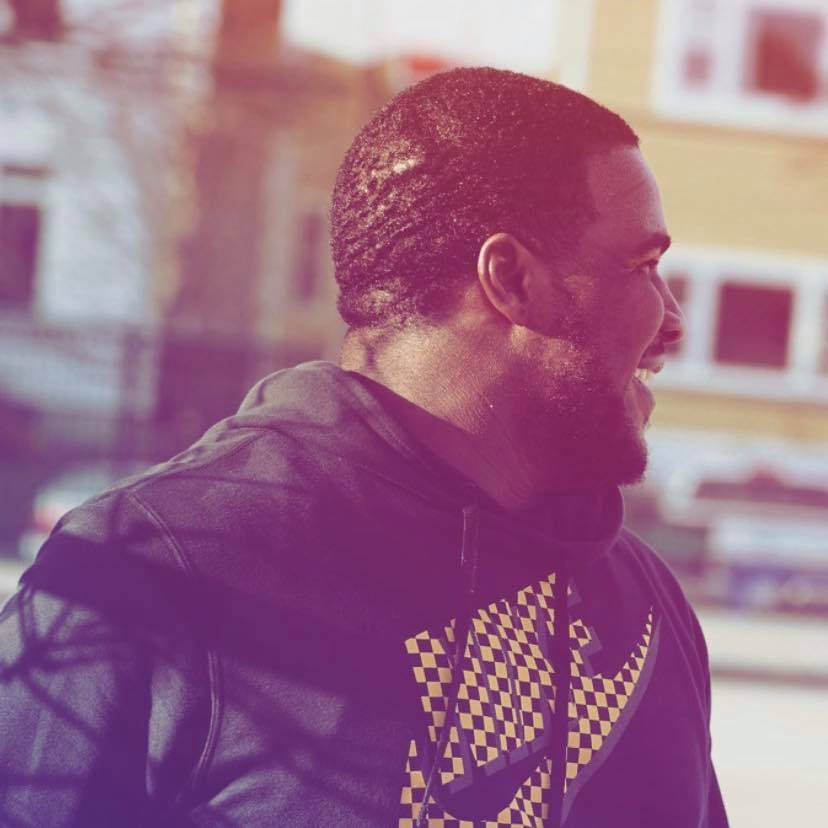
Despite playing both football and basketball and playing the drums in the school band, Smith said his grades were mediocre at best, and he didn’t have a plan for his future after high school graduation. So, he briefly worked at McDonald’s, then found a better-paying factory job.
It was good money at first, roughly $14 per hour, but then the plant shut down. So, he enrolled in college in Northern Minnesota and joined the football team, but between family and financial aid issues, he was forced to drop out. He found more factory work back home, but a series of layoffs left him without a steady paycheck. It wasn’t long before he was feeling depressed and defeated.
“I was tired of getting lifted up to be let down,” he explained. “I don’t know if it’s a religious thing or a Black Baptist thing, but you’re told ‘Go to school, get a job, and you’ll be good.’ But I tried working these good jobs. I tried going to school. I couldn’t sell drugs — that wasn’t me. I can’t rap — that’s not me either. But I’ve always been funny.”
Smith started watching standup comedy videos on YouTube and slipping into open mics to peep the scene. One night, at Bremen Cafe and after watching sets from the back of the room night after night, he finally found the courage to get up on stage. The adrenaline rush was enough to show Smith that standup comedy was more than just a fleeting hobby — it became his life’s ambition.
“When I get those genuine moments and get those interactions with the crowd when I tell a new joke or perform at a new venue, [or] when someone says you’re funny, that means a lot,” Smith said. “It feels good to bring that to people.”
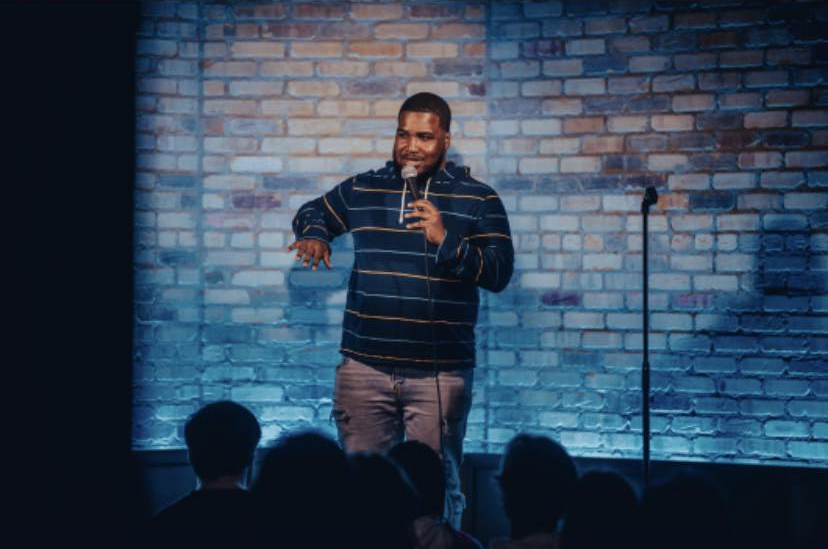
Since that night in 2017, Smith has performed his brand of comedy at clubs and venues across the region, opening for notable comics such as Chastity Washington, Neil Brennan, Steve Byrne and Yamaneika Saunders. Last year, he placed second in “Madison’s Funniest Comic,” Comedy on State’s annual standup competition. And he considers his fellow comics to be his family.
But until he finds his big break and cements his place among the comedy legends, Smith still has bills to pay. It’s one of the reasons he’s dedicated to his day job as a US Postal worker.
Thriving to me is hitting your personal goals consistently. You can’t base it off what you see other people do.Eric Smith
“I just wanted a good, first-shift job,” he said of the career choice. “I liked the idea of stability.”
At least for now.
Smith sees Milwaukee as a stepping stone for his bigger dreams in entertainment: scriptwriting, voiceover work, and of course, more standup. He doesn’t want to get too complacent; he believes Cream City can only take him so far.
“Thriving to me is hitting your personal goals consistently — you can’t base it off what you see other people do,” Smith said. “Some people are cool with just picking up a check. I don’t have a degree, but I’ve shown promise. I’ve only scratched the surface of what I want to do.”
Benjamin Hooks: ‘I refuse to just float by’
Benjamin Hooks’ energy is contagious. Smiling behind the mic at 101.7 The Truth, the on-air producer and personality — better known by the station’s listeners as “Ben-Jammin’” and his signature hype man hook “It’ssss ahh-mazin’!!” — still can’t believe he’s living his dream.
The Racine, Wisconsin transplant originally came to Milwaukee to pursue his hip-hop dreams in a bigger pond. When he landed a role on the Street Team for V100, the city’s longest-running hip-hop and R&B station, he felt like he secured the bag.
Just months prior, Hooks was humming along as a retail sales worker, holding uninspiring roles at Direct TV, Menards and Walmart. Bored out of his skull, he walked out on the job.
“You work with people and they talk about mundane things and they’re just floating by,” explained Hooks, adding that no one pushed the idea of going to college, then or before his decision to quit. “I said, forget it. But I went broke. I was poor, and I thought ‘Damn, I made the wrong choice.’”
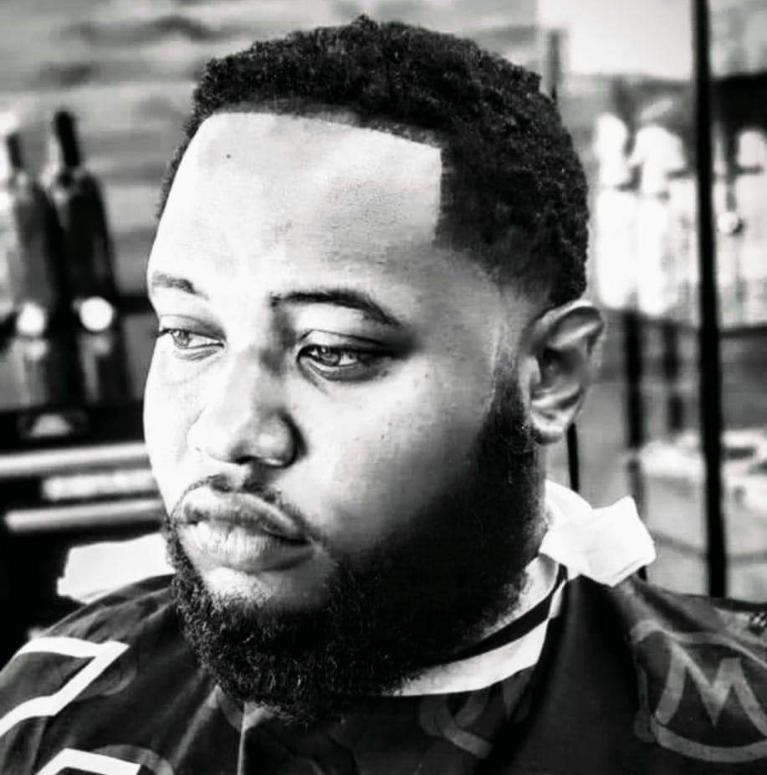
Hooks filled out applications everywhere, whether he had the resume skillset or not, including at V100. He was shocked when he got a callback for an interview.
“I worked my ass off being on the Street Team,” he said. “You get to learn different things when you take on little jobs and dibble and dabble. I just kept thinking how cool the job was, meeting so many different artists, [that] it almost felt illegal to do. I thought I was going to be there forever.”
Then the pandemic hit and Hooks was laid off. Eight months later, he returned to V100 and was clued in on the launch of a brand-new Black talk radio station, The Truth. He’s been with the station for nearly three years.
Hooks, 30, remembers being a shy, lonely middle child who spent hours acting out the stories of superheroes and action stars on TV and dreaming about making the charts like his favorite rap artists. Raised alongside his siblings by a single mother without a father figure around, he learned about the trials and tribulations of Black manhood from the lyrics spit by Jay-Z, Nas and Notorious B.I.G., and aspired to follow in their footsteps.
But when it came to living in blue-collar Racine, most of Hook’s peers didn’t dream of breaking through the mold the way he did.
“When you talk about the opportunities afforded to Black men and what their aspirations should be, you don’t get that in the Midwestern industry,” Hooks said. “More than likely you’ll have to work at a factory or a retail job. Those are pretty much your only options.”
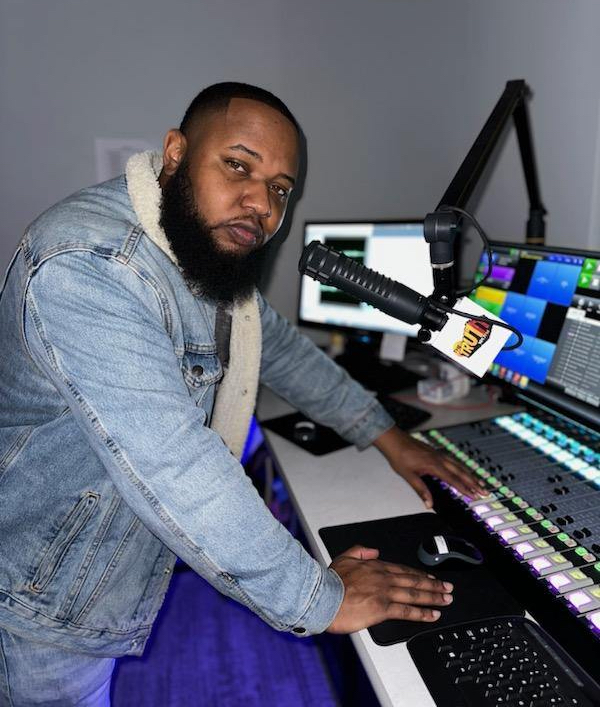
Hooks points to pervasive perspectives, such as pushes for assimilation, for slowing equitable progress; for example, many Black parents encourage their adult children to find factory or service jobs and settle for a passable living.
And that’s fine, he said. But many of today’s Black Millennials and Gen Z view opportunity differently. They are emboldened to build generational wealth and demand the space to show up authentically as themselves — racial and economic barriers be damned. In fact, they’re pretty much prepared to jump right over that ship.
If you’re working on a career, and dreams, and the goals on your heart, that’s thriving to me.Benjamin Hooks
“We have different jobs and goals,” Hooks explained. “[Our parents] didn’t know they could start a business or an LLC. But for me, the world is my oyster. I just need to go out and achieve my goals.”
Hooks says the plight of other young Black men in Milwaukee could be helped if the city and its stakeholders committed to centralizing resources and giving them more visibility. People don’t know what they don’t know.
“How do we as Black men in America win overall when we have all these different things coming at us?” Hooks said. “It’s extremely hard and difficult when you don’t have any guidance. You’re just hoping you land on your feet.”
Until those changes come to fruition, Hooks plans to use his platform and music to share stories and uplift the Milwaukee community. And he plans to do it all with his signature positive energy.
“God put me here, and I want to be a vessel of God,” Hooks said. “If you’re working on a career, and dreams, and the goals on your heart, that’s thriving to me. Anything else is like a petal falling away from a flower.”
Godfrey Campbell: ‘I want to inspire everyone to live their dreams’
On a video call, Godfrey Campbell is squeezing in an interview with a reporter between production runs. The Racine native turned Milwaukee entrepreneur, 30, is feeling the pressure of balancing his family priorities, his day job in a print shop, freelancing, and the latest drop from his popular streetwear fashion brand, Living Loaded.
Not that he minds the bull rush. Like many of the young Black men covered in this series, Campbell once spent time earning his keep on the assembly line, and frankly, he’s not too keen on looking back.
“In Racine, there’s plenty of challenges,” Campbell shared, adding he moved to Milwaukee to join his wife. “As a young kid, there weren’t many programs for us to find our paths and what we like to do. In Milwaukee, there are a lot of opportunities to build a business. There are seminars, workshops, street festivals to be a part of and to touch the community with. You just have to go find it.”
That’s not to say that everything about Milwaukee is peachy-keen. Campbell remembers visiting the city in his early 20s and being stunned by the stark levels of racial segregation.
Yet, the thought of how he might be perceived as a Black man upon a move to Milwaukee didn’t deter his goals. Once he arrived, the graphic designer immediately connected with Actual Ink Designs, the print shop where he’s since been made a partner.
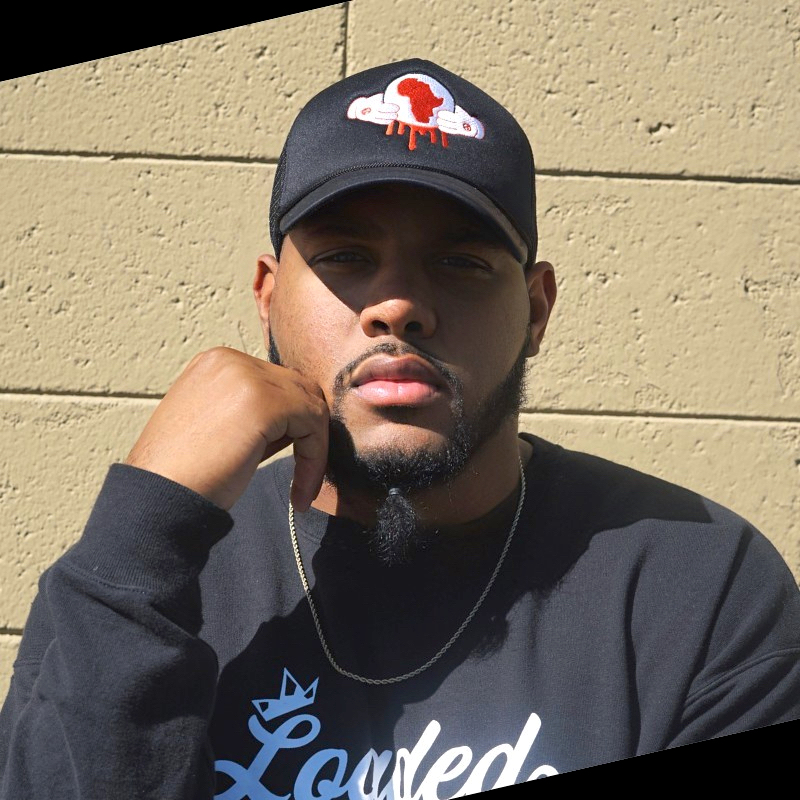
For most of his young life, Campbell chased his dream to play professional football. But by the time he reached the college roster, he’d started losing love for the sport. He returned home with a lost sense of vision.
“I didn’t really know what I wanted to do,” Campbell recalled. “I was working at Champs [the sports retail store], a factory, and Boston Store. I just thought ‘Yo, this is not it either. I can’t be working all day. So, I let go of the factory. But talking to people in retail was easy.”
Perhaps in an attempt to lift his spirits, Campbell’s mother gifted him a used vinyl machine and heat press, used for screen printing, and 300 plain T-shirts. But he had no idea how the apparatus worked. The equipment sat in the basement for months.
Poring over the machines one day, Campbell decided he would need to pick up graphic design skills if he ever wanted to make an impression with a T-shirt brand. He went back to school.
“The courses I took were never boring,” he said. “I learned all the programs in Adobe and did my research with the vinyl cutter. I was like, ‘I can do this.’ It was taking an intangible thought and making it tangible. Once I got inspired, it inspired me to [keep going]. It was a defining moment.”
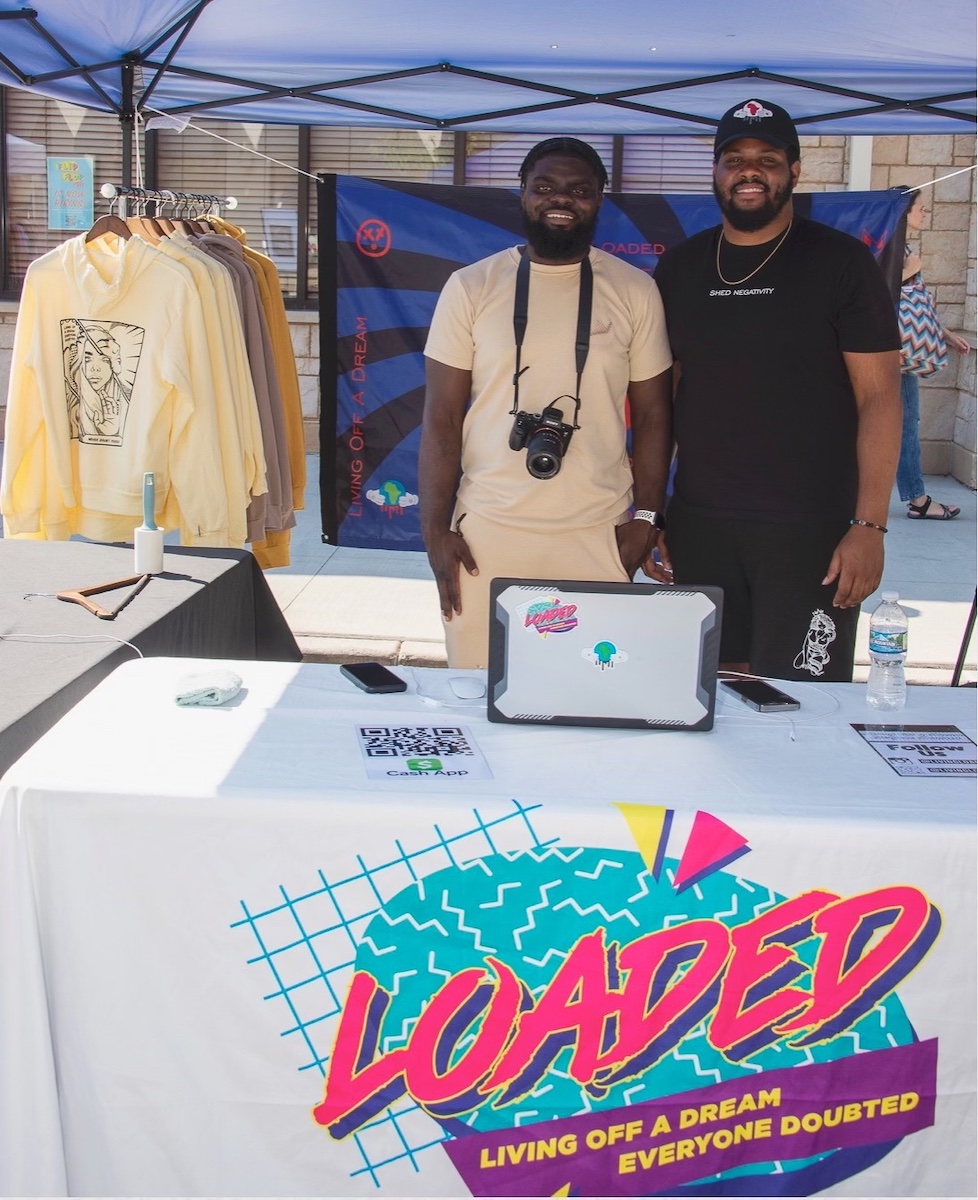
He cleaned up the storage room and set up shop. Soon, orders were flowing in from family and friends who needed a dozen T-shirts here, sometimes 40 there, and all of the tees had to be made by his own two hands.
“I put a lot of hours in,” Campbell said of those early days. “There’s been times I was in the storage room for two days straight, leaving only to get something to eat. But I’m always going back in.”
Today, Campbell sees his brand — L.O.A.D.E.D, an acronym standing for “Living off a dream everyone doubted” — as a way to inspire people to live their dreams and connect the community through pop-up shops, networking events, and his forthcoming brick-and-mortar store — scheduled to open on Main Street in his own hometown.
Wearing a cap emblazoned with the words “Work Harder,” Campbell said despite his long hours, he wouldn’t change a thing.
“I don’t feel like we have the same opportunities [as whites] because we’re not in the same rooms,” Campbell explained. “But being in the position to help others drives me. If I have money, I’ll be able to help people. How L.O.A.D.E.D came about, I knew it was way bigger than something like this.”
Brandon Ramey: A renewed vision for Milwaukee
Ramey currently serves as site director at Quad Graphics, where he is heading up the company’s new recruiting and training hub, removing barriers to employment and providing family-sustaining career opportunities to local residents who often go overlooked.
It’s the first time in his emerging career that he’s been able to combine his life experiences with his passion for community. He said he couldn’t have turned his life around without the continuous support of his family members or his mentors pushing him to reach his potential.
“I thank God my father had the resources, and I had those people in my life who cared about me and poured into me,” he added. “A lot of youth in this community don’t have anybody to grab them and save them. They don’t get those second chances.”
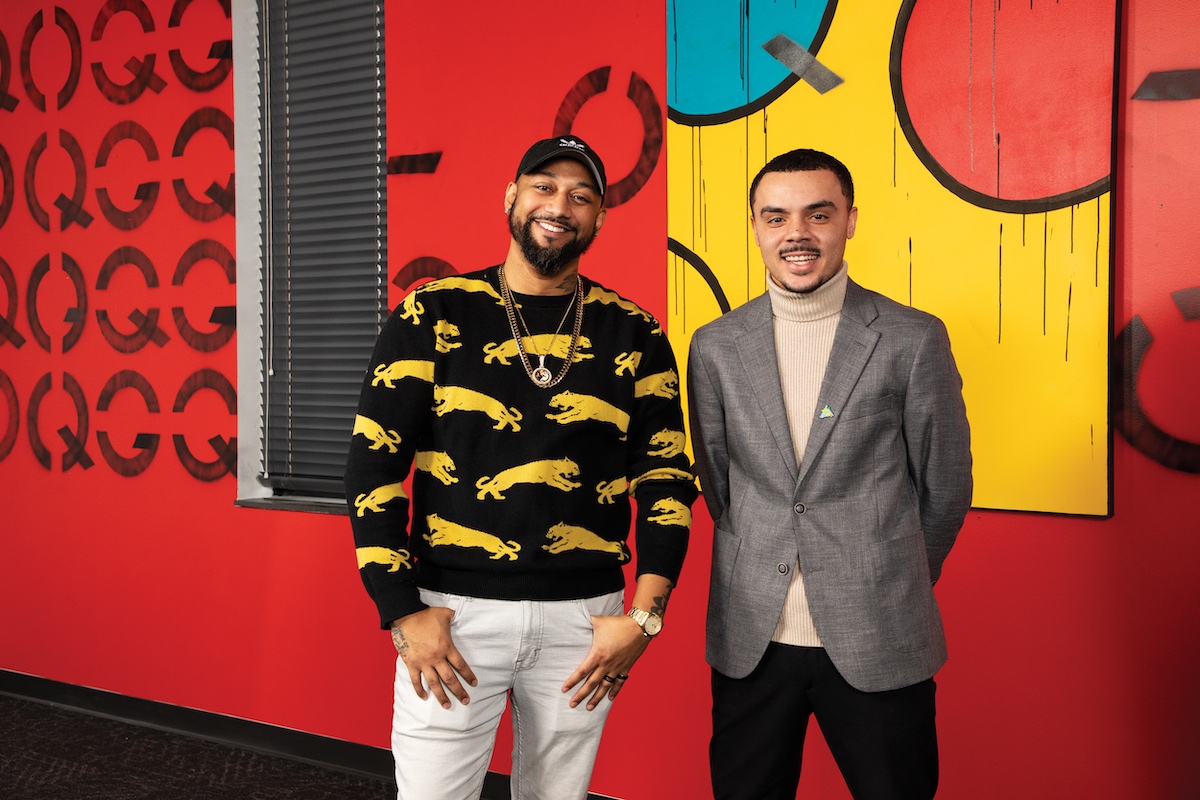
Ramey believes the universe is aligned to provide him with a career opportunity that enables him to give back to the Milwaukee community and help steer its transformation. Through his work, he envisions developing more programming to connect and lift up more marginalized groups, such as formerly justice-involved individuals and others who’ve been deeply impacted by the racial divide.
In his own life, Ramey remains grateful for the business mentors, family members and friends who opened the doors wide enough to allow him to step into his full potential — and successfully provide for his family.
He’s determined to play a role in the reimagining of Milwaukee’s future and make it a better place for the next generation, including for his young children. Too often, Black professionals find success and disconnect, he said.
“When I think about thriving, I think about embracing the journey,” Ramey said. “Sometimes you’re going to succeed. Sometimes you’re going to fail. But the biggest thing you learn is that in those moments you grow. Once you get there, it’s all about being willing to give back.”

